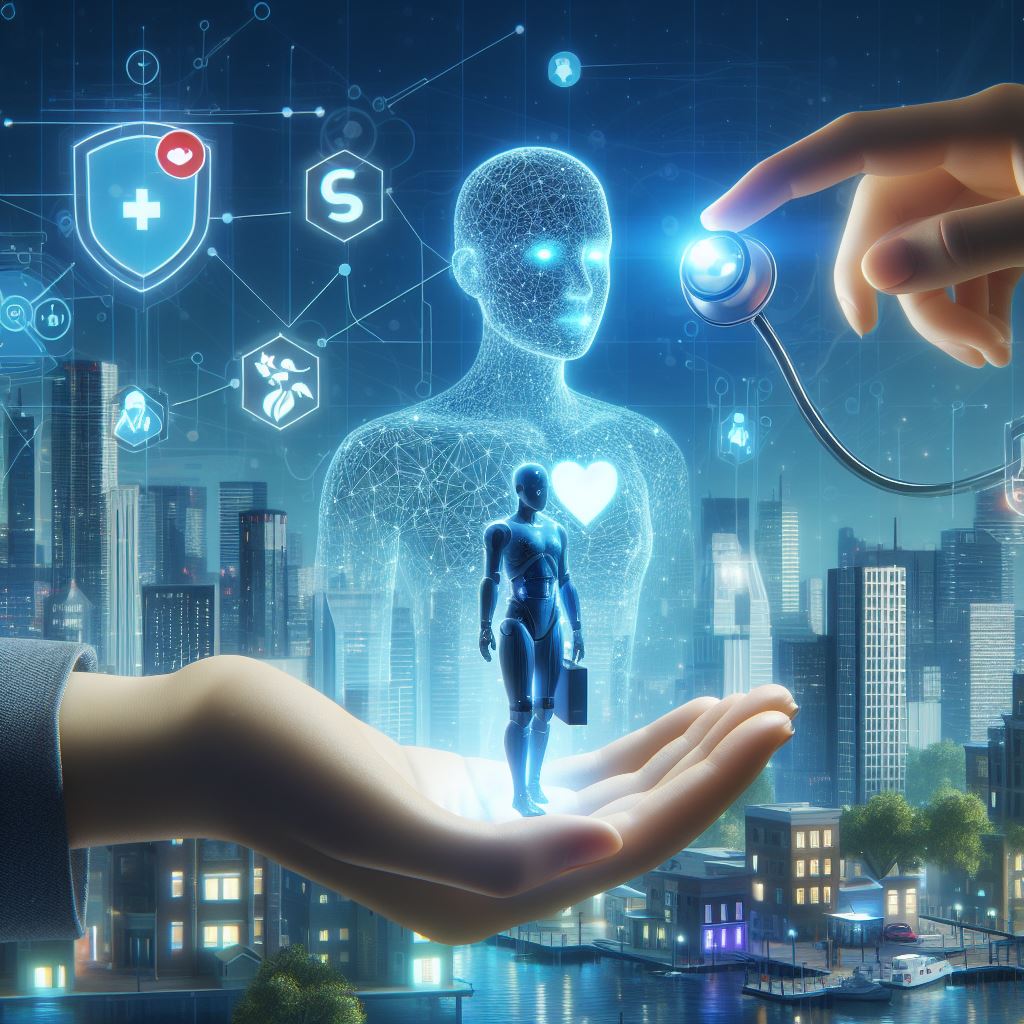Artificial intelligence (AI) is transforming the world in unprecedented ways, creating new opportunities and challenges for humanity. But what is the role of human care in this rapidly changing landscape? How can we ensure that AI serves the best interests of people and society? These are some of the questions that Sam Altman, the CEO of OpenAI, addressed in his recent talk at the World Economic Forum in Davos.
OpenAI is a research organization that aims to create artificial general intelligence (AGI), a level of AI that can perform any intellectual task that humans can. Altman believes that AGI will be the most impactful technology of this century, and that it has the potential to solve some of the biggest problems facing humanity, such as climate change, poverty, and disease.
However, Altman also recognizes the risks and challenges that come with developing and deploying such powerful technology. He argues that we need to align AI with human values and goals, and that we need to ensure that AI is accessible and beneficial to everyone. He also stresses the importance of human involvement and oversight in shaping the future of AI, and that we should not delegate our decisions and responsibilities to machines.
One of the key themes that Altman emphasized in his talk was the relationship between AI and human care. He defined human care as the ability to understand and cater to the needs and interests of others, and to show compassion and empathy. He argued that human care is a distinctive and essential human trait, and that AI will not replace it, but rather augment it.
Altman gave several examples of how AI can enhance human care in various domains, such as education, health, and entertainment. He envisioned a future where AI can help teachers personalize learning for each student, where AI can assist doctors in diagnosing and treating patients, and where AI can create immersive and interactive experiences for users.
Altman also acknowledged the limitations and challenges of AI in providing human care. He noted that AI systems are still far from perfect, and that they can make mistakes and cause harm. He also pointed out that AI systems may not always share or understand the interests and values of humans, and that they may have unintended or undesirable consequences.
Altman suggested that we need to be forgiving and tolerant of AI errors, as we are of human errors, and that we need to have a nuanced understanding of the trade-offs and benefits of using AI. He also emphasized the need for AI systems to be transparent and explainable, and to be able to communicate their reasoning and actions to humans.
Altman concluded his talk by expressing his optimism and excitement for the future of AI and humanity. He said that he believes that AI will enable us to achieve more than we ever imagined, and that it will empower us to create a better world for ourselves and others. He also said that he hopes that AI will inspire us to be more caring and compassionate towards each other, and to appreciate the uniqueness and value of human life.
AI and human care is a topic that has generated a lot of interest and debate among various stakeholders, such as researchers, policymakers, practitioners, and patients. There are different perspectives on how AI can enhance or challenge human care in health and social domains, and what ethical and governance issues need to be addressed.
One perspective is that AI can improve human care by providing more accurate, efficient, and personalized services, such as diagnosis, treatment, education, and entertainment. AI can also help reduce human errors, biases, and workload, and enable better access and quality of care for underserved populations. This perspective emphasizes the potential benefits and opportunities of AI for human well-being and social good.
Another perspective is that AI can undermine human care by posing risks and challenges, such as privacy, security, accountability, transparency, and trust. AI can also affect human dignity, autonomy, and agency, and create social and economic inequalities and injustices. This perspective highlights the potential harms and pitfalls of AI for human rights and values.
In his talk at the World Economic Forum in Davos, Sam Altman, the CEO of OpenAI, shared his vision for the future of artificial intelligence (AI) and its impact on human care. He argued that AI will not replace human care, but rather augment it, and that it will help us solve some of the biggest problems facing humanity. He also recognized the risks and challenges of developing and deploying AI, and stressed the importance of aligning AI with human values and goals, and ensuring human involvement and oversight in shaping the future of AI. He expressed his optimism and excitement for the potential of AI and humanity, and hoped that AI will inspire us to be more caring and compassionate towards each other.


1 thought on “AI and Human Care: Sam Altman’s Vision for the Future”